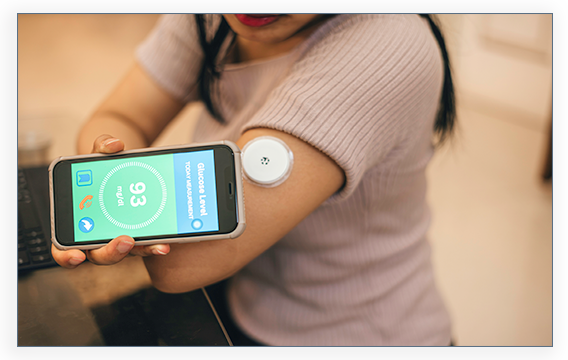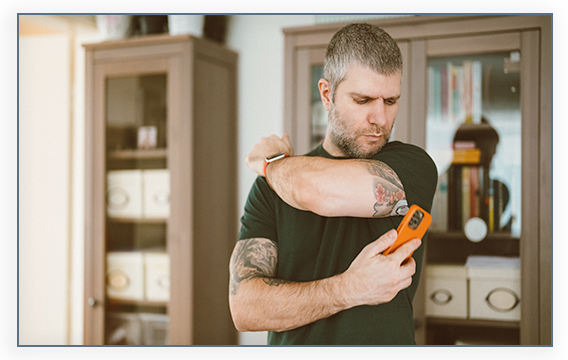Diabetes Complications You Should Know
Diabetes can affect your entire body, and over many years, it can lead to complications. High blood glucose levels can damage your eyes, the nerves in your feet and legs, and your blood vessels. Keeping your blood glucose as close to normal as possible can lower your risk for complications. Getting regular check-ups help find complications early.

Eyes
The retina is in the back of your eye and works like film in an old camera. It allows light to form a picture that is then sent to your brain. Your retina has many tiny, fragile blood vessels, and high blood glucose causes the blood vessel walls to weaken, making it harder to see. Because damage to your eyes is not always noticeable, it is recommended that people with diabetes have their eyes dilated and checked once a year. Finding the damage early can lower chances of losing your vision.

Feet/Legs
High blood glucose levels can cause damage to your nerves. This tends to happen most often in the feet or the legs, because these nerves are the longest in the body and the farthest from your spine. Because diabetes affects blood flow, sores or infections can take longer to heal. It’s always better to prevent problems than treating them.

Heart
Diabetes can damage blood vessels that flow to your heart and brain. People with diabetes are twice as likely to die of heart disease as people without diabetes. The good news is that you can lower your risk by meeting the following targets:
-
Blood pressure less than 140/80 mmHG
-
Total cholesterol of 200 mg/dL or less
-
Having body mass index (BMI) of 30 or less
-
Getting 30 minutes of exercise, 3-5 times per week
-
Not smoking

Can Diabetes Complications be Prevented?
Although you need to be aware of diabetes complications, there is good news. Most complications are linked with high blood glucose levels over time, so you can lower your risk by keeping blood glucose levels as close to normal. Being aware of the symptoms can help you get the treatment you need in time and avoid serious complications. The more you know, the more you can do to have a longer, healthier future. Wearing a continuous glucose monitor can help. Learn More About Continuous Glucose Monitors.
Is a CGM right for you?
Learn MoreTags: CGM, Continuous Glucose Monitors, Diabetes, Diabetes Complications



